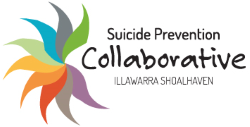It's not uncommon for people experiencing alcohol or drug use to encounter suicidal thoughts or ideation.
Story by Natalie Croxon, Photo by Anna Warr, Illawarra Mercury.
It's not uncommon for people experiencing issues with alcohol or other drugs to encounter suicidal thoughts or ideation, yet those who do can find themselves shuffled between services and in the worst instances, falling through the cracks.
This problem is why the Illawarra Shoalhaven Suicide Prevention Collaborative has partnered with education provider SafeSide Prevention to develop a training program for the alcohol and other drugs sector.
The collaborative's lived experience coordinator, Jay Gardener, said they had heard from both the workforce and people seeking help were being passed between an alcohol and other drug program and a mental health service because the former could not, or did not know how, to "hold the risk" of suicide.
But mental health supports found the issues with alcohol or another drug did not fit their service.
"So people were just being bounced around, which is very harmful," Mx Gardener said.
"It leads to more alcohol and drug use, and increases suicidality."
They said communication between different services might also be lacking.
"So this program is meant to act more like a common language... So that people can move between services as they need to without risk of harm," Mx Gardener said.
The SafeSide model was one used in a lot of mental health services so it was a familiar framework, they said, so if alcohol and other drug services also took it on board, the different bodies would be taking the same approach.
Mx Gardener said not all services might want or be able to take on the SafeSide training but they hoped this would at least bring the issue to the fore, encouraging services to find a better way forward.
People with lived experience of suicidality and alcohol and other drugs issues has been key to the development of the program.
In their role, Mx Gardener convened a group that helped rewrite and customise the SafeSide scripts and demonstrations to ensure they were specific to this region and would not cause more harm.
"To do that, it's important to have people with lived experience of both suicidality [and] alcohol and drugs," they said.
"It's also important to have people... who work in a clinical space, who work in best practice academics."
The group had representation from groups most disproportionately impacted, Mx Gardener said, such as Aboriginal and Torres Strait Islander people, LGBTQIA people, and men.
"Just to make sure that what we were writing and what we were creating was reflective of those experiences and was actually going to be useful," they said.
The South Eastern NSW Primary Health Network, COORDINARE, has funded the project and the first three years of training are free.
You can find someone who will listen without judgement at Wollongong Safe Haven (open 2-10pm Wed-Sat, 55 Urunga Parade, Wollongong), Lifeline (24/7, phone 13 11 14) 13YARN (24/7, phone 13 92 76), or the Suicide Call Back Service (24/7 on1300 659 467). If you or someone else is in danger, call 000.
